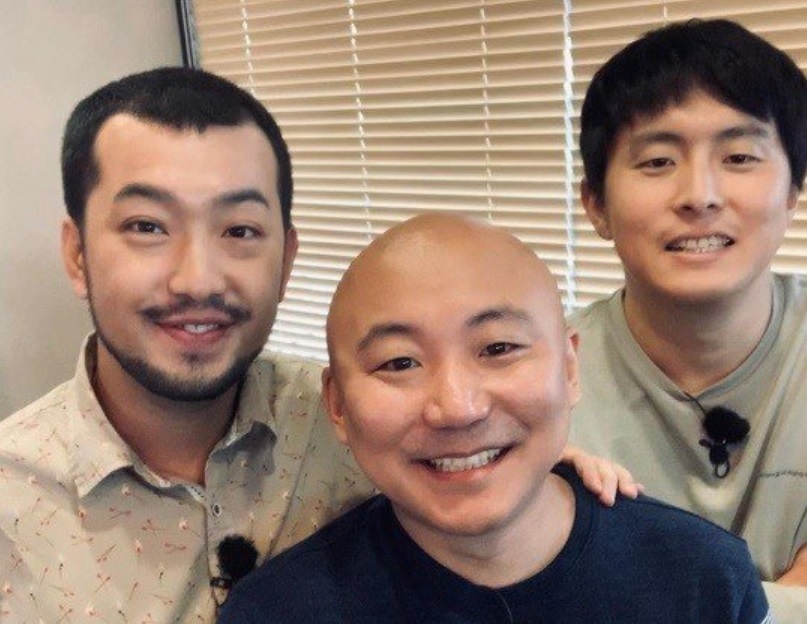 |
Author Joo Ho-min (center) with Kian84 (right) and author Leemalnyeon (Instagram) |
Although webtoons shown on major portal sites have been popular for almost two decades, they have never been subjected to as much criticism as they are getting now.
Controversy over webtoon content has been especially heated since August, when popular webtoon author Kian84 uploaded an episode that was criticized by fans. The most recent controversy occurred Sept. 18, when author Joo Ho-min of “Along With the Gods” made a contentious remark during a Twitch broadcast after a viewer asked him, “What do you think of the recent censoring of webtoons?”
“Recently there have been comics of low quality and that strayed from commonly held sensibilities and human rights,” said Joo. “Comics have the ability to express anything, but it is also true there are some things that shouldn’t be used (as material). You shouldn’t make fun of victims of war or people born with disabilities.
“In the past, it was the government that censored webtoons, but now it’s the readers. An era of citizen dictatorship has opened and it’s a big problem,” said Joo. “This will become worse and worse. Since the citizens are censoring other citizens, we can’t do anything. We are drawing comics in difficult times.”
Joo later apologized and stated that he had not read most of the webtoons that had sparked controversy, including Kian84’s, but had been speaking in a broad sense. His use of the expression “citizen dictatorship” was inappropriate, he said.
While inappropriate content by webtoon authors can be a source of controversy, the nature of webtoons can amplify that controversy.
First, the readers are only given part of the story each week and don’t get the full picture until a series is complete. For a full week, readers are left to speculate about what’s next and discuss the story in threads and comments.
Author Sakk of “Hellper” apologized for the torture and drugging of an elderly character in one episode after many fans criticized it earlier this month.
“I couldn’t deliver what I meant fully because I lacked the ability. But I always worked every week wanting the good to triumph over evil,” said Sakk.
Sakk had a villain torture one of his protagonists, but before he had time to show good triumphing over evil, he had to apologize and take a break from working. Readers had no way to tell what the message would be, given that only part of the webtoon was out and there was only the violent episode to speculate on.
Another feature of a webtoon is that any reader can react immediately.
There are two major ways to do this: writing a comment and giving the episode a rating between 1 and 10.
But Naver’s English webtoon page does not allow readers to give ratings. It only allows them to “like” a particular episode.
Most webtoons on major portal sites like Daum and Naver can be read for free by anyone with internet access, and anyone can leave comments and ratings under their portal IDs.
While the reactions can serve as good feedback for authors, they can also be a double-edged sword and a source of stress, especially midway through a story. The anonymity enjoyed by readers is also a double-edged sword.
Finally, the recent controversies concerned mostly webtoons on Naver, the most popular platform for webtoons with over 5.5 million readers, according to data platform IGAWorks. While most readers in the mid-2000s were students in their teens, today’s Naver webtoon readers are mostly in their 20s and 30s, a group that continues to expand. With such a large and diverse audience, authors cannot please everyone.
Responding to the controversy surrounding Kian84, Naver pledged to do better. “We and the author will be more careful in the future regarding different contents dealt with in this work,” a Naver webtoon official said last month.
By Lim Jang-won (
ljw@heraldcorp.com)








